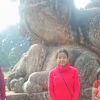From Idea to Publication: A Ghostwriter's Journey to Bestseller
It began with a whisper, an insistent itch in the back of my mind. Not my own idea, mind you, but one entrusted to me, confided in hushed tones over coffee, its potential shimmering like a mirage in the desert of unfulfilled dreams. This wasn't my voice that yearned to be heard, but the story of a renowned scientist, Dr. Amelia Chen, whose groundbreaking research threatened to rewrite the textbook on human cognition. Yet, Dr. Chen, brilliant as she was, lacked the time and inclination to weave her findings into a narrative that would captivate the world. Thus, I, the invisible weaver of words, became her conduit, the ghostwriter tasked with giving life to her scientific symphony.
This wasn't my first foray into the shadowy realm of ghostwriting. I'd breathed life into corporate memoirs, self-help guides, and even a racy romance novel (don't judge, a writer's gotta pay the bills!). But Dr. Chen's book felt different. It wasn't just the thrill of venturing into uncharted scientific territory; it was the sheer weight of responsibility to translate complex concepts into compelling prose, to humanize the cold logic of academia, and to do justice to a story with the potential to impact millions.
The first step was immersion. I devoured Dr. Chen's research papers, transcripts of her lectures, and even personal anecdotes scribbled on lab napkins. We met for hours, not just to discuss science, but to understand the woman behind the research – her hopes, fears, and the passion that fueled her relentless pursuit of knowledge. This wasn't about writing a textbook; it was about giving the world a glimpse into the mind of a scientific pioneer, to show them the human journey behind the groundbreaking discovery.
Then came the crafting. Each sentence felt like a delicate dance on a tightrope, balancing scientific accuracy with literary flair. I wrestled with jargon, coaxed metaphors from data sets, and built bridges between the technical and the emotional. Every day was a fresh puzzle, a constant negotiation between Dr. Chen's expertise and my storytelling instincts.
There were moments of doubt, of course. The blank page mocked me, and the technical nuances threatened to drown out the narrative. But Dr. Chen's unwavering faith in her story, and in me, kept me going. We cheered each other on through late nights fuelled by coffee and adrenaline, celebrating every small victory with high-fives and nervous laughter.
The days bled into weeks, weeks into months. The manuscript grew, morphing from a skeletal outline into a living, breathing narrative. We revised, restructured, and polished until it gleamed, each sentence resonating with the shared vision we had nurtured. And then, came the moment of truth: sending the manuscript out into the unforgiving world of literary agents and publishers.
The waiting was agonizing. Rejection emails felt like gut punches, but each one fueled a fierce determination to keep pushing, to find the right home for Dr. Chen's story. And then, it happened. A phone call, an email, a burst of sunshine breaking through the storm clouds of uncertainty. Our book had found its publisher.
The journey from agent to acceptance was just the first hurdle. Editing rounds, cover design, marketing strategies – each step a nail hammered into the edifice of our shared dream. But through it all, the excitement only grew.
And then, finally, the book was born. The day it hit the shelves felt like a coronation, a validation of the countless hours, the tireless revisions, and the unwavering belief in a story that defied categorization. Holding the physical manifestation of our collaboration, feeling its weight in my hands, was a moment of unadulterated joy.
But the real victory came in the form of reader testimonials. Emails from students inspired to pursue science, scientists applauding the accessible portrayal of complex concepts, and even book club discussions dissecting the human story woven within the scientific tapestry. Dr. Chen's book became a bestseller, not just for the groundbreaking research it presented, but for the way it ignited imaginations and rekindled faith in the power of human curiosity.
Looking back, it's easy to get swept away by the glamour of the bestseller list. But the true essence of this journey lies in the quiet satisfaction of having played a part in giving voice to a story that needed to be heard. It's the knowledge that my words touched lives, sparked debates, and maybe, just maybe, changed the world in a small but significant way.
This is the magic of ghostwriting, the invisible art of lending your voice to another's soul. It's about stepping into the shadows, not to be devoured by obscurity, but to become the silent architect of someone else's dream. It's a journey of collaboration, of shared passion, and of the profound satisfaction of seeing a whispered idea bloom into a e latest updates to the Privacy Help HubOpens in a new window
Conversation with Bard
profile picture
Write an article of 3000 words on the topic "From Idea to Publication: Ghostwriting Success Story"
From Idea to Publication: A Ghostwriter's Journey to Bestseller Success
It began with a whisper, an insistent itch in the back of my mind. Not my own idea, mind you, but one entrusted to me, confided in hushed tones over coffee, its potential shimmering like a mirage in the desert of unfulfilled dreams. This wasn't my voice that yearned to be heard, but the story of a renowned scientist, Dr. Amelia Chen, whose groundbreaking research threatened to rewrite the textbook on human cognition. Yet, Dr. Chen, brilliant as she was, lacked the time and inclination to weave her findings into a narrative that would captivate the world. Thus, I, the invisible weaver of words, became her conduit, the ghostwriter tasked with giving life to her scientific symphony.
This wasn't my first foray into the shadowy realm of ghostwriting. I'd breathed life into corporate memoirs, self-help guides, and even a racy romance novel (don't judge, a writer's gotta pay the bills!). But Dr. Chen's book felt different. It wasn't just the thrill of venturing into uncharted scientific territory; it was the sheer weight of responsibility to translate complex concepts into compelling prose, to humanize the cold logic of academia, and to do justice to a story with the potential to impact millions.
The first step was immersion. I devoured Dr. Chen's research papers, transcripts of her lectures, and even personal anecdotes scribbled on lab napkins. We met for hours, not just to discuss science, but to understand the woman behind the research – her hopes, fears, and the passion that fueled her relentless pursuit of knowledge. This wasn't about writing a textbook; it was about giving the world a glimpse into the mind of a scientific pioneer, to show them the human journey behind the groundbreaking discovery.
Then came the crafting. Each sentence felt like a delicate dance on a tightrope, balancing scientific accuracy with literary flair. I wrestled with jargon, coaxed metaphors from data sets, and built bridges between the technical and the emotional. Every day was a fresh puzzle, a constant negotiation between Dr. Chen's expertise and my storytelling instincts.
There were moments of doubt, of course. The blank page mocked me, and the technical nuances threatened to drown out the narrative. But Dr. Chen's unwavering faith in her story, and in me, kept me going. We cheered each other on through late nights fuelled by coffee and adrenaline, celebrating every small victory with high-fives and nervous laughter.
The days bled into weeks, weeks into months. The manuscript grew, morphing from a skeletal outline into a living, breathing narrative. We revised, restructured, and polished until it gleamed, each sentence resonating with the shared vision we had nurtured. And then, came the moment of truth: sending the manuscript out into the unforgiving world of literary agents and publishers.
The waiting was agonizing. Rejection emails felt like gut punches, but each one fueled a fierce determination to keep pushing, to find the right home for Dr. Chen's story. And then, it happened. A phone call, an email, a burst of sunshine breaking through the storm clouds of uncertainty. Our book had found its publisher.
The journey from agent to acceptance was just the first hurdle. Editing rounds, cover design, marketing strategies – each step a nail hammered into the edifice of our shared dream. But through it all, the excitement only grew.
And then, finally, the book was born. The day it hit the shelves felt like a coronation, a validation of the countless hours, the tireless revisions, and the unwavering belief in a story that defied categorization. Holding the physical manifestation of our collaboration, feeling its weight in my hands, was a moment of unadulterated joy.
But the real victory came in the form of reader testimonials. Emails from students inspired to pursue science, scientists applauding the accessible portrayal of complex concepts, and even book club discussions dissecting the human story woven within the scientific tapestry. Dr. Chen's book became a bestseller, not just for the groundbreaking research it presented, but for the way it ignited imaginations and rekindled faith in the power of human curiosity.
Looking back, it's easy to get swept away by the glamour of the bestseller list. But the true essence of this journey lies in the quiet satisfaction of having played a part in giving voice to a story that needed to be heard. It's the knowledge that my words touched lives, sparked debates, and maybe, just maybe, changed the world in a small but significant way.
This is the magic of ghostwriting, the invisible art of lending your voice to another's soul. It's about stepping into the shadows, not to be devoured by obscurity, but to become the silent architect of someone else's dream. It's a journey of collaboration, of shared passion, and of the profound satisfaction of seeing a whispered idea bloom into a bloom into a bestselling masterpiece. But my ghostwriting odyssey didn't end with Dr. Chen's book. It became a springboard, catapulting me into a world of diverse voices and untold stories. I helped a war veteran pen his gripping memoir, his PTSD transforming into raw prose that painted a battlefield unlike any history book could. I collaborated with a shy entrepreneur, her quiet business pitch blossoming into a compelling manifesto that resonated with aspiring CEOs. And I even ghost wrote a children's book, my inner child giggling as I spun fantastical tales of talking animals and magical adventures.
Each journey was unique, a kaleidoscope of challenges and triumphs. There were rejections, of course, moments when even the most compelling narratives seemed to fall on deaf ears. But the successes, the emails from grateful clients, the reviews praising the "authenticity" of voices I had merely channeled – these were the fuel that kept me going.
Ghostwriting taught me more than just the craft of storytelling. It honed my empathy, allowing me to step into the shoes of individuals vastly different from myself. It challenged my adaptability, forcing me to navigate the treacherous waters of genres and styles I wouldn't have dared to explore on my own. And most importantly, it instilled in me a profound respect for the power of stories – the ability to connect, to inspire, and to change the world, one word at a time.
Today, as I sit down to face the blank page, the whispers of new stories already swirling in my mind, I feel a surge of gratitude for the invisible path I've chosen. This is not just a career; it's a privilege, a front-row seat to the human experience in all its messy, glorious complexity. It's the chance to be a witness, a translator, a midwife to ideas that would otherwise remain unheard.
So, to all the aspiring ghostwriters out there, the ones who yearn to lend their voice to the voiceless, I say this: Embrace the shadows. The stories that need telling are far more numerous than the names on the covers. And in the quiet act of giving voice to another, you might just find your own.
Like this project
Posted Jan 3, 2024
Description of my ghost writing experiences uptill now.
Likes
0
Views
5






